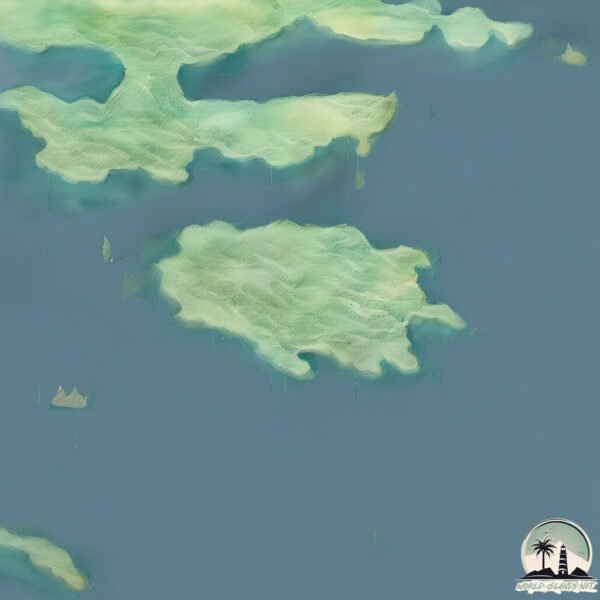Sandray

Welcome to Sandray, a Temperate island in the Inner Seas off the West Coast of Scotland, part of the majestic Atlantic Ocean. This guide offers a comprehensive overview of what makes Sandray unique – from its geography and climate to its population, infrastructure, and beyond. Dive into the details:
- Geography and Size: Explore the island’s size and location.
- Climate and Weather: Weather patterns and temperature.
- Topography and Nature: Uncover the natural wonders of the island.
- Infrastructure and Travelling: Insights on reaching, staying, and making the most of your visit.
- News and Headlines: Latest News.
Geography and size of Sandray
Size: 4.348 km²
Coastline: 12.3 km
Ocean: Atlantic Ocean
Sea: Inner Seas off the West Coast of Scotland
Continent: Europe
Sandray is a Small Island spanning 4.3 km² with a coastline of 12.3 km.
Archipel: Outer Hebrides – A chain of islands off the west coast of mainland Scotland, known for their rugged beauty, Gaelic culture, and traditional way of life.
Tectonic Plate: Eurasia – One of the world’s largest tectonic plates, the Eurasian Plate covers a significant portion of Europe and Asia. It’s characterized by diverse geological features, including the Ural Mountains, the European Plain, and the Himalayas formed from its collision with the Indian Plate.
The geographic heart of the island is pinpointed at these coordinates:
Latitude: 56.89246606 / Longitude: -7.51619322
Climate and weather of Sandray
Climate Zone: Temperate
Climate Details: Temperate Oceanic Climate
Temperature: Warm Summer
Climate Characteristics: Known for its moderate year-round temperatures with ample rainfall and no dry season. Warm summers are characteristic.
Topography and nature of Sandray
Timezone: UTC±00:00
Timezone places: Europe/London
Max. Elevation: 129 m
Mean Elevation: 70 m
Vegetation: Open Woodland
Tree Coverage: 39%
The mean elevation is 70 m. The highest elevation on the island reaches approximately 129 meters above sea level. The island is characterized by Plains: Flat, low-lying lands characterized by a maximum elevation of up to 200 meters. On islands, plains are typically coastal lowlands or central flat areas.
Dominating Vegetation: Open Woodland
Characterized by sparsely distributed trees with open canopy allowing sunlight to penetrate, supporting grasses and shrubs underneath. Often found in drier or transitional environments. Sandray has a tree cover of 39 %.
Vegetation: 7 vegetation zones – Very Highly Diverse Island
Islands in this range are ecological powerhouses, showcasing a wide array of vegetation zones. Each zone, from lush rainforests to arid scrublands, coastal mangroves to mountainous regions, contributes to a complex and interdependent ecosystem. These islands are often hotspots of biodiversity, supporting numerous species and intricate ecological processes.
Infrastructure and Travelling to Sandray
Does the island have a public airport? no.
There is no public and scheduled airport on Sandray. The nearest airport is Barra Airport, located 15 km away.
Does the island have a major port? no.
There are no major ports on Sandray. The closest major port is CASTLE BAY, approximately 6 km away.
The mean population of Sandray is 4 per km². Sandray is Gently Populated. The island belongs to United Kingdom.
Continuing your journey, Vatersay Island is the next notable island, situated merely km away.
United Kingdom is classified as Developed region: G7: Group of Seven – Major advanced economies, including Canada, France, Germany, Italy, Japan, the United Kingdom, and the United States. The level of income is High income: OECD.
News – Latest Updates and Headlines from Sandray
Stay informed with the most recent news and important headlines from Sandray. Here’s a roundup of the latest developments.
Please note: The data used here has been primarily extracted from satellite readings. Deviations from exact values may occur, particularly regarding the height of elevations and population density. Land area and coastline measurements refer to average values at mean high tide.
